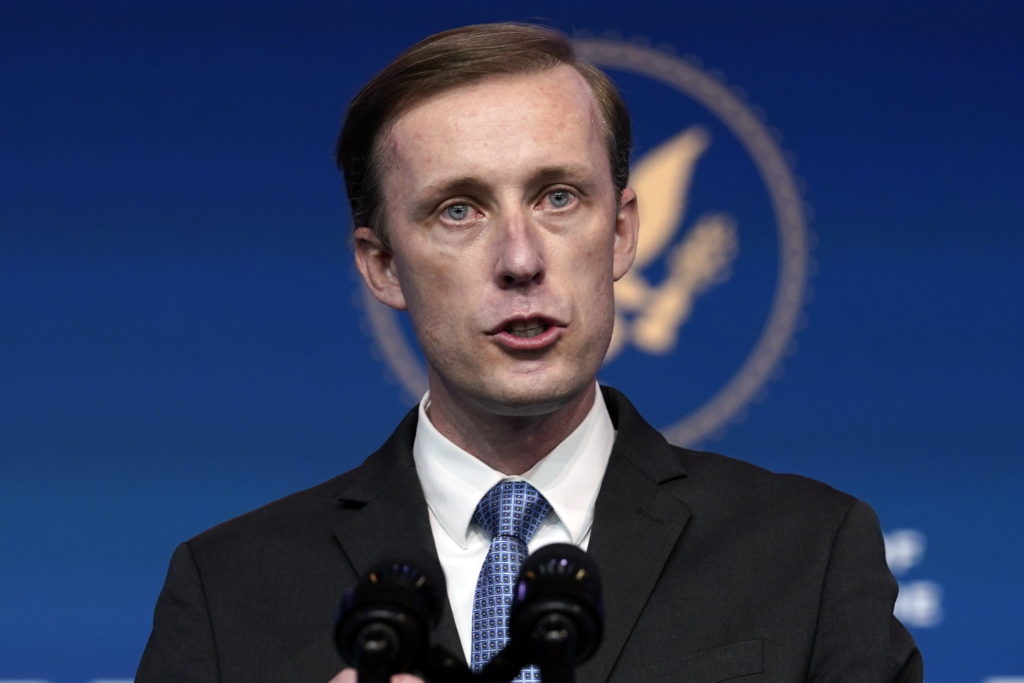“In fact, Iran continues to act in ways that are at odds with the interests of the United States and its allies,” he added.
Incoming US National Security Adviser Jake Sullivan told CNN on Sunday that the execution of Iranian terror mastermind Qassem Soleimani did not make America safer or protect U.S. interests.
Soleimani, leader of Iran’s Islamic Revolutionary Guards Corps-Quds Force, was the architect of Iran’s strategy for regional domination via terrorist proxies and military involvement in the Syrian civil war. He was killed on Jan. 3, 2020 in a U.S drone strike.
The IRGC has been listed as a terror organization by the U.S.
Speaking to host Fareed Zakaria, Sullivan was asked about an opinion piece he wrote following Soleimani’s death that predicted a massive Iranian retaliation. Zakaria asked if he would acknowledge that this does not appear to have occurred.
Sullivan answered that, as President-elect Joe Biden has also said of Soleimani, “No American would mourn his passing.”
However, he asked, “Did that action make America safer? Did it protect our national interests? And I submit to you one year later, the answer to that question is no.”
“Iran is closer to a nuclear weapon today than they were one year ago,” he asserted. “Iran has been emboldened to continue its attacks on shipping and oil infrastructure in the Gulf. We did see proxies of Iran attack American interests in Iraq over the course of the past year, and that remains a continuing, ongoing concern.”
“So, all of the promises that we got from this administration about how their policy was going to get us a better deal on the nuclear front, was going to stop Iran’s malign behavior across the region, those promises did not bear out,” Sullivan continued.
“In fact, Iran continues to act in ways that are at odds with the interests of the United States and its allies,” he added. “And nothing about the action that was taken one year ago today set that back.”
Sullivan also addressed the possibility that a new nuclear deal with Iran will tackle the issue of its ballistic missile capabilities, something of particular concern to Israel.
“Our view is that Iran’s ballistic missile program has to be on the table,” he said.


